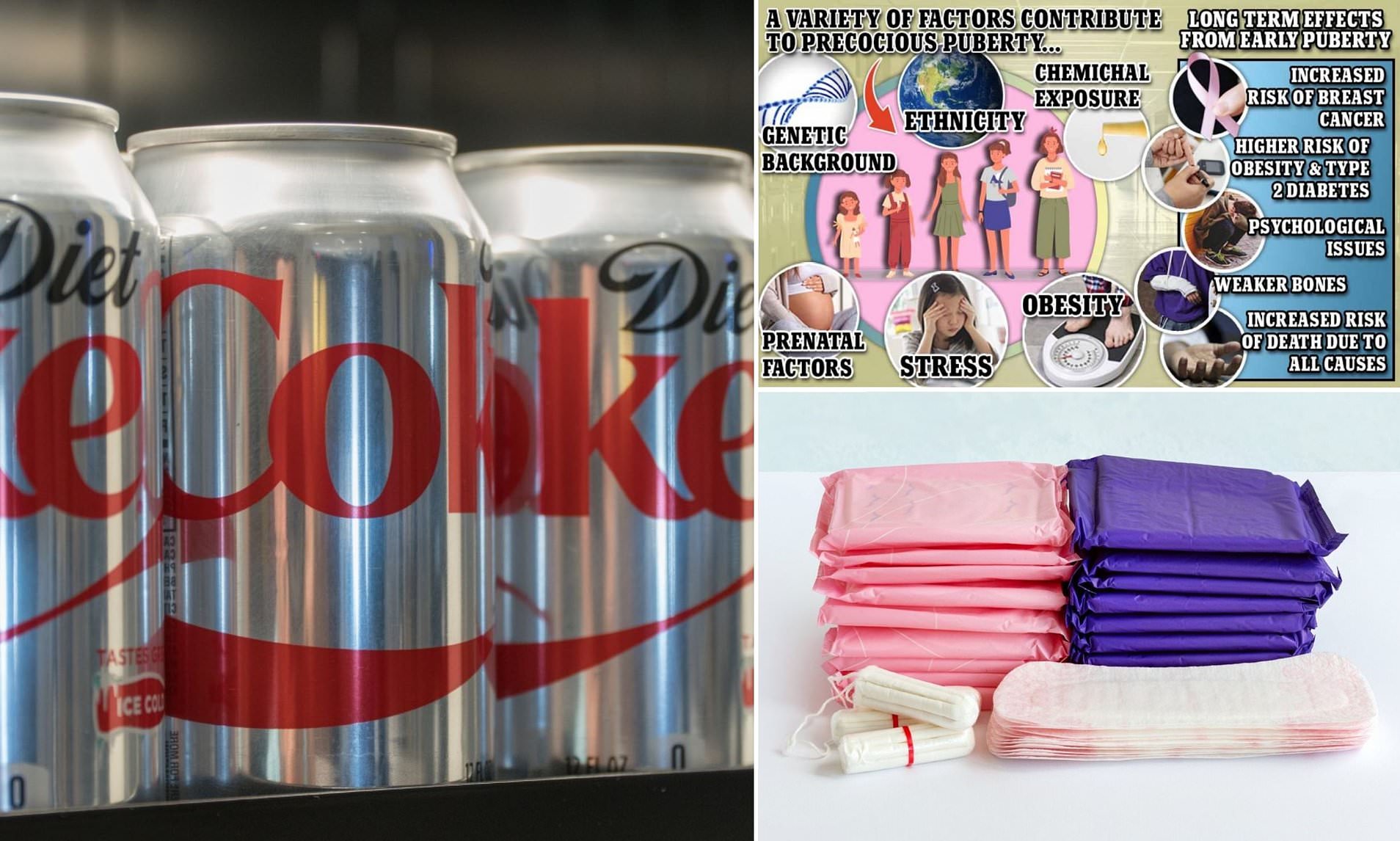
The Link Between Artificial Sweeteners and Early Puberty
Recent research has uncovered a potential connection between the consumption of artificial sweeteners and the early onset of puberty in children. This finding has sparked concern among health experts, as it suggests that dietary habits may significantly influence developmental processes.
The study focused on common sweeteners such as aspartame, which is widely used in products like Diet Coke, Extra chewing gum, and Muller Light yoghurts. These additives have long been associated with various health risks, including cancer and heart problems. However, new evidence indicates that they may also play a role in triggering central precocious puberty—where children begin showing signs of puberty much earlier than expected.
In girls, this typically occurs before the age of eight, while in boys, it usually begins before the age of nine. The research, conducted by Taiwanese scientists, highlights how high levels of these sweeteners could impact children's development, particularly when combined with genetic predispositions.
Key Findings from the Study
The study involved 1,407 Taiwanese teenagers who completed diet questionnaires and underwent urine tests. Out of this group, 481 participants were found to have experienced early puberty. Researchers observed that certain sweeteners had varying effects depending on gender. For instance, sucralose was more strongly linked to early puberty in boys, whereas aspartame, glycyrrhizin, and added sugars showed a stronger association with girls.
Experts noted that the risk was most significant for those with a genetic tendency towards early puberty. The study was presented at ENDO 2025, the Endocrine Society’s annual meeting in San Francisco, but it has not yet been published in full. One limitation of such studies is that eating habits are often self-reported, which can introduce inaccuracies.
Understanding the Mechanisms
The researchers proposed that artificial sweeteners might affect puberty by influencing brain cell function or altering gut bacteria. These changes could disrupt hormonal balances, leading to earlier development. Previous studies from the same team have shown that some sweeteners can interfere with the release of hormones related to puberty.
Sucralose, a popular artificial sweetener, is chemically modified from regular sugar and is not metabolized as a carbohydrate, making it calorie-free. It is commonly found in products like Canderel. On the other hand, glycyrrhizin, derived from liquorice roots, is a natural sweetener.
Ongoing Concerns and Controversies
Despite the findings, critics argue that observational studies cannot definitively prove that sweeteners cause early puberty. They emphasize that other factors may contribute to the observed outcomes. Additionally, concerns about the potential health risks of artificial sweeteners have existed for years, particularly regarding their impact on cardiovascular health.
In 2023, the World Health Organisation classified aspartame as “possibly carcinogenic to humans,” although it stated that the risk was only significant for those consuming very large amounts. According to the agency, an adult weighing 70kg could safely consume around 14 cans of Diet Coke per day.
Long-Term Health Implications
A growing body of research suggests that girls who experience early puberty may face greater health challenges later in life. A 2023 US study found that girls who began menstruating before the age of 13 were at a higher risk of developing type 2 diabetes and experiencing strokes in adulthood. Another study published in The Lancet linked early puberty to an increased risk of breast cancer.
Experts attribute the trend of younger puberty onset to the ongoing obesity crisis. Fat cells contain hormone-like properties that can trigger early development. As childhood obesity rates continue to rise, the implications for public health remain a pressing concern.
Conclusion
The link between artificial sweeteners and early puberty underscores the need for further research into the long-term effects of these substances. While the current study provides valuable insights, more comprehensive investigations are necessary to fully understand the mechanisms at play and to guide public health policies. As awareness grows, parents and healthcare providers must remain vigilant about the dietary choices that may influence children's development.


Posting Komentar